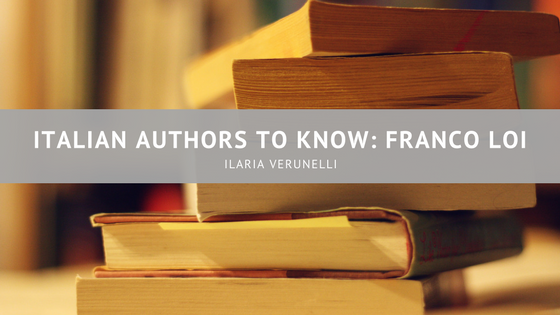Life
Franco Loi was born in Genoa on January 20, 1930. When he was seven years old, his father moved the family to Milan, Italy’s second-largest city and an important center of the arts and culture. The Milanese dialect of his new hometown would become a great influence on Franco’s later work as a writer, poet, and essayist.
During his childhood and teenage years in the 1940s, Loi witnessed the murders of Italian partisans, the resistance protesters who were opposed to Mussolini and to Italy’s alignment with the Axis powers and Adolph Hitler’s Germany. These early experiences would influence some of the major themes of his writing, which include war, the presence of evil in the world, and regret for a lost paradise.
Loi started out working as an accountant and a bookkeeper. He became a clerk working at the port of Genoa and from there moved into doing public relations work. In 1962, he took a job with Mondadori, Italy’s largest publishing house.
Shortly after entering the world of publishing through the administrative route, Loi began writing poetry in the Milanese dialect, the main language used in his production, even though, we can also find inserts of Genovese, the dialect spoken in his childhood and of colornese, the dialect spoken by the mother from Parma (e.g. L’Angel). He described this early writing as if it were dictated to him from someone else, explaining his prolific output.
Poetry
Loi’s poem “The Cart” was published in a journal in 1973 and attracted some attention, which continued when his “Love Poems” was published in 1974. By 1975 he had gained some positive critical reviews, particularly for his poetry collection Stròlegh (Astrologer), which won him the Bonfiglio Prize and remains his best-known work. Since then, Loi has garnered Nonino, Librex Premio Montale, and Brancati Prizes, which are Italian literary awards. He has also been recognized as a distinguished member of the community of Milan and of Lombardy, the region around Milan.
As an artist, Loi’s style embraces both neologisms and archaic words, particularly archaic words that refer back to Dante’s Divine Comedy. His tone uses a mixture of voices, including street slang, designed to give expression to society’s oppressed and exploited members.
In addition to his poetry, Franco Loi wrote the 2001 short story collection The Breadth of the Sky and several collections of essays. He has been publishing literary criticism since 1980.


